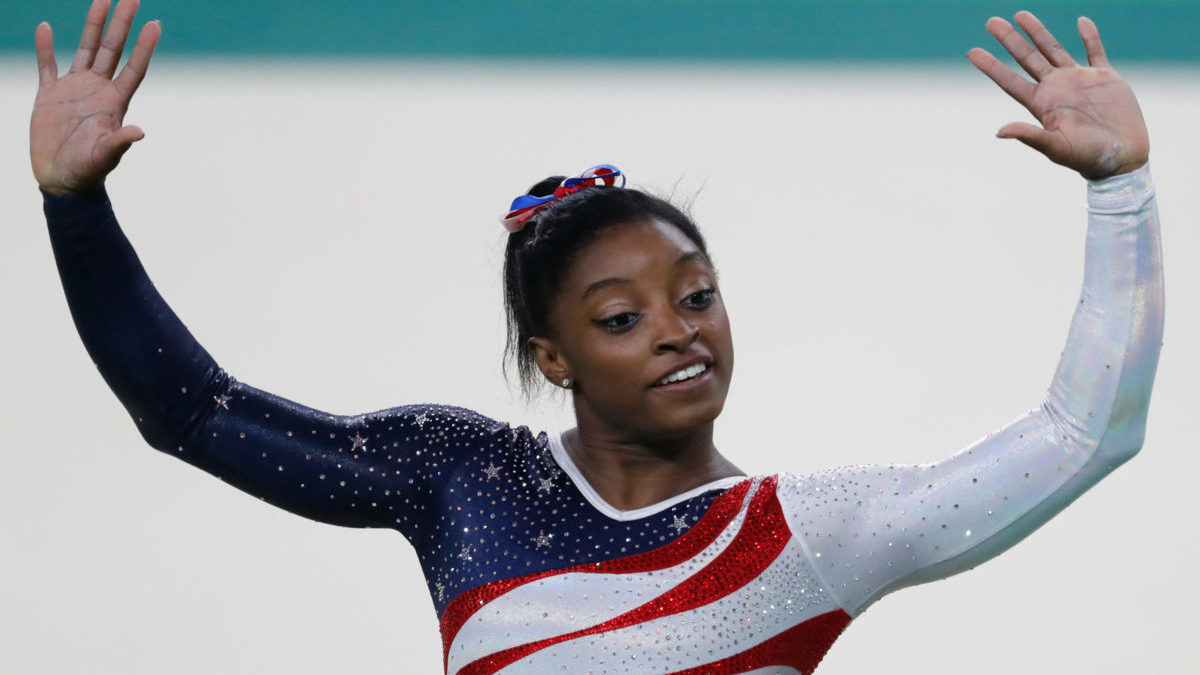From petty and nominal accolades such as the Athlete of the Year, to meritorious recognitions such as the Pulitzer, the absence of any genuine competition makes imminent the eventual disintegration of any sense of fair play.
Simone Biles was named Time magazine’s 2021 Athlete of the Year, supposedly for inspiring global conversations about mental health after publicly prioritizing her physical and mental well-being at the Tokyo Olympics. This should not come as a surprise, as it did to some, amid widespread mockery on social media.
Biles, as readers would remember, infamously withdrew from the Olympics because she broke down under pressure. This was not little Shropshire County’s one-legged gunny bag race. This was representing the country in the Olympics, which is ostensibly the greatest sporting event of its kind.
The athletes who participate in the Olympics are not equal to us. They are better than us, which means they are expected to perform despite immense pressure — not quit. Quitting makes one average, and average people might be worthy of respect and even pity, but not accolades. Quitting never gets anyone prizes, or at least it never did up until now. Yet Biles (and her public relations person) unashamedly explained that she put herself before everything else. Her teammates won silver without her. She came back later and won a bronze.
Now, Biles is of course a very talented individual and has suffered some extremely abusive and dark times. And in the past, she achieved a lot. But that is beside the point. The athlete of this year is not supposed to be for prowess in other fields or past history. Retired greats are not suddenly being named Athlete of the Year for their gardening skills, for example.
As others rightfully questioned, why were Katie Ledecky, Allyson Felix, Tamyra Mensah-Stock, or Sydney McLaughlin not chosen by Time? The latter three, especially, are role models, and won against all odds in the same Olympics. It would have been especially appropriate at a time of renewed debate about minority role models and representation.
Not an Outlier
But it would be fallacious to consider this case an outlier. This accolade for Biles is negligible and mostly for public relations, but it is by no means unique.
Consider any transgender athlete who is competing with women. “When the whole team is together, we have to be like, ‘Oh my gosh, go Lia, that’s great, you’re amazing.’ It’s very fake,” an anonymous female athlete revealed recently about a man with a square jawline, broad shoulder plate, baritone, and a very prominent Adam’s apple breaking all the female undergrads’ swimming records.
This sense of dejected helplessness is not just in sports. Someone now can get accepted into Stanford University by simply writing “Black Lives Matter” a hundred times. 1619 Project lead Nikole Hannah-Jones is offered a professorship without doing any peer-reviewed research, and wins a Pulitzer simply because she knows what to say, regardless of the historical validity of the narrative.
Thousands of far more intelligent historians and political scientists meanwhile remain jobless. The end result is almost always predetermined in a society where fair competition appears to be ending. Discrimination against one of the most hardworking and family-oriented minority groups is normalized in academia, higher-ed, and law and order, and no one bats an eyelid or starts a mass-protest movement. This double standard is institutionalized in society as a norm.
New Elite Co-opts Movement
The urban left often talks a big game about precariatization while deliberately overlooking the key variable in social mobility — merit and competition — because it helps their own social strata, which is predominantly upper-middle-class, mostly young and liberal ascendant, and up to speed with current cultural and social fads. The new elite, just like those of the old in the Florentine republic or the Dutch guilds, surpasses achievement and co-opts movements towards their class interests.
In the Florentine republic, elite bankers designed a system that systematically subverted the old republican traditions by destroying any fair competition. Eventually, it resulted in a local hierarchy by destroying any equality of opportunity, then took over governance and turned the republican system into one of feudalism.
Achievements are often determined and judged by one’s peer group, thereby establishing a loop and a resulting hierarchy. From petty and nominal accolades such as the Athlete of the Year to meritorious recognitions such as the Pulitzer, the absence of any genuine competition makes imminent the eventual disintegration of any sense of fair play.
There was another system of governance that reflected a similar lack of fair play, in which a section of society knew they would never win despite their best efforts because the system was designed to promote only those it prefers. That’s called an aristocracy.
We often simply focus on Rome to study historical cycles but a better template perhaps is the corruption and decline of the Florentine republic. In the cycle of history, the clearest sign of a new, emerging aristocracy is not economic decline or even varied social mores between different sections of society. It is the decline of any fair competition. That results in further class divisions and fuels backlash. It is a relevant lesson for our times.









